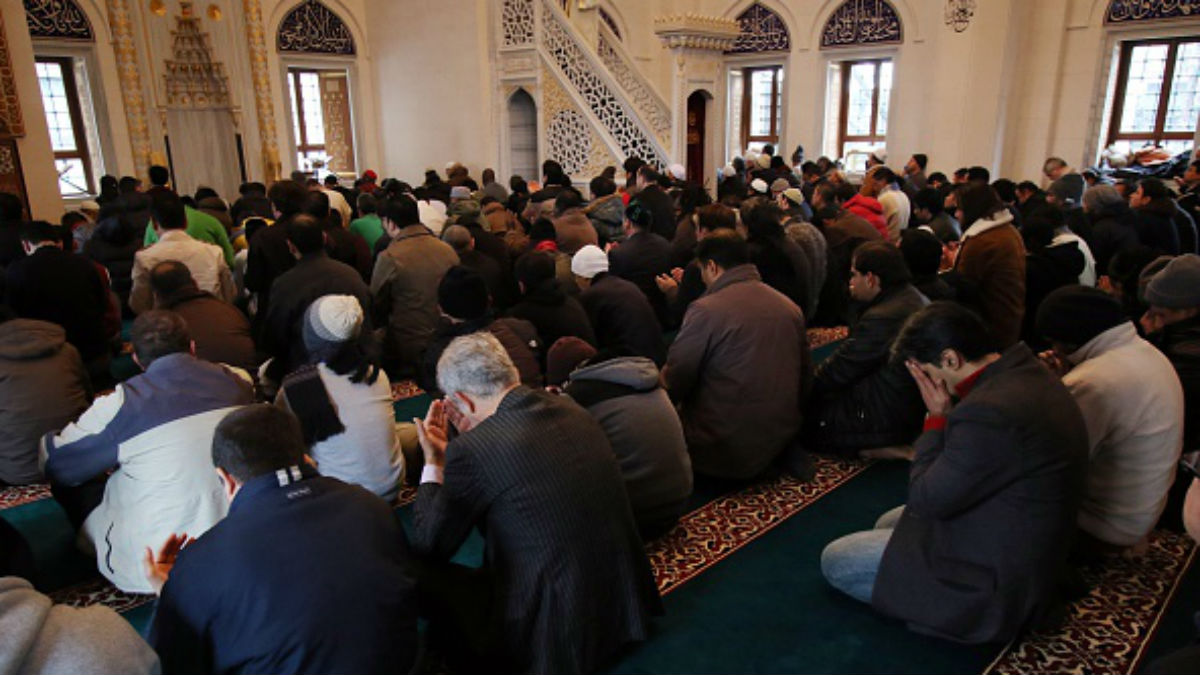Japan's top court upholds blanket surveillance of Muslims
Spy programme on groups, mosques and even halal restaurants deemed 'necessary and inevitable'

A free daily email with the biggest news stories of the day – and the best features from TheWeek.com
You are now subscribed
Your newsletter sign-up was successful
Japan's Supreme Court has rejected a second appeal by the country's Islamic community against nationwide surveillance of Muslim groups, mosques and even halal restaurants.
Seventeen plaintiffs complained the government's security measures constituted "an unconstitutional invasion of their privacy and freedom of religion", says The Independent.
However, the Supreme Court dismissed the appeal as unconstitutional and so did not rule on whether the police profiling and surveillance tactics were lawful. A lower court had upheld them as "necessary and inevitable" to guard against international terrorism.
The Week
Escape your echo chamber. Get the facts behind the news, plus analysis from multiple perspectives.

Sign up for The Week's Free Newsletters
From our morning news briefing to a weekly Good News Newsletter, get the best of The Week delivered directly to your inbox.
From our morning news briefing to a weekly Good News Newsletter, get the best of The Week delivered directly to your inbox.
The case was brought after a 2010 police leak revealed officials were monitoring Japanese Muslims at places of worship, halal restaurants and Islam-related organisations across the country.
Japanese-born Muhammad Fujita (not his real name), who converted to Islam more than 20 years ago, told Al-Jazeera the Muslim community had been unfairly targeted for surveillance.
"They made us terrorist suspects," he said. "We never did anything wrong."
Fujita claims he and his wife have been spied on since the early 2000s. The police documents revealed that tens of thousands of individual Muslims had been extensively profiled, with files detailing their personal information as well as their place of worship.
A free daily email with the biggest news stories of the day – and the best features from TheWeek.com
Muslims have lived in Japan for more than 100 years, with the first mosque constructed in 1935, but they constitute a tiny religious minority.
Although the government does not compile official statistics, there are believed to be around 100,000 Muslims in the country, 90 per cent of them foreign-born and the remaining 10,000 or so ethnically Japanese.
"People of the Islamic faith are more likely to be targeted... despite not having any criminal activities or associations or anything like that in their background, simply because people are afraid," said NSA whistleblower Edward Snowden, speaking at a Tokyo symposium on government surveillance via a weblink.
-
 6 of the world’s most accessible destinations
6 of the world’s most accessible destinationsThe Week Recommends Experience all of Berlin, Singapore and Sydney
-
 How the FCC’s ‘equal time’ rule works
How the FCC’s ‘equal time’ rule worksIn the Spotlight The law is at the heart of the Colbert-CBS conflict
-
 What is the endgame in the DHS shutdown?
What is the endgame in the DHS shutdown?Today’s Big Question Democrats want to rein in ICE’s immigration crackdown
-
 Epstein files topple law CEO, roil UK government
Epstein files topple law CEO, roil UK governmentSpeed Read Peter Mandelson, Britain’s former ambassador to the US, is caught up in the scandal
-
 Iran and US prepare to meet after skirmishes
Iran and US prepare to meet after skirmishesSpeed Read The incident comes amid heightened tensions in the Middle East
-
 Israel retrieves final hostage’s body from Gaza
Israel retrieves final hostage’s body from GazaSpeed Read The 24-year-old police officer was killed during the initial Hamas attack
-
 China’s Xi targets top general in growing purge
China’s Xi targets top general in growing purgeSpeed Read Zhang Youxia is being investigated over ‘grave violations’ of the law
-
 Panama and Canada are negotiating over a crucial copper mine
Panama and Canada are negotiating over a crucial copper mineIn the Spotlight Panama is set to make a final decision on the mine this summer
-
 Why Greenland’s natural resources are nearly impossible to mine
Why Greenland’s natural resources are nearly impossible to mineThe Explainer The country’s natural landscape makes the task extremely difficult
-
 Iran cuts internet as protests escalate
Iran cuts internet as protests escalateSpeed Reada Government buildings across the country have been set on fire
-
 US nabs ‘shadow’ tanker claimed by Russia
US nabs ‘shadow’ tanker claimed by RussiaSpeed Read The ship was one of two vessels seized by the US military